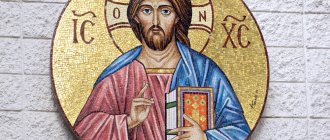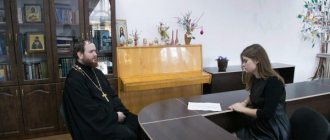Unpleasant situations happen very often in the life of every person. It is especially difficult to endure them when it comes to death, because it is not so easy to understand that you will no longer see a loved one. After the death of a person, it is necessary to preserve his memory, come to the grave on the specified days and take care of it. But is it possible to go to the cemetery on the birthday of the deceased, and most importantly, how to behave correctly on this day? Regarding this issue, during specific periods, opinions emerged and they were different.
What is death in the Christian tradition
In Orthodoxy, the birthday of a deceased person is considered the day of his death. According to Christian teachings, only the earthly human body dies, as it is sung in the funeral canon - “you are earth, and to earth you will go (go).” And just as God created the human body from earth (dust) at creation, so after death it immediately turns into earth - it becomes very heavy, and gradually almost completely dissolves in the soil. And the human soul is what God gives to the human body at conception - an immortal spark, which during life is enclosed in the body, and after liberation (death), is born for a new, eternal life and goes back to God. It is not for nothing that in Orthodoxy death is called dormition (falling asleep). Therefore, when a person dies, his close people are sad at parting with him, but they believe that in due time they will be together again, in another, better world.
When is it appropriate to remember the dead?
According to Orthodox canons, visiting a cemetery is not supposed to happen on the birthday of the deceased, but on specially designated days. These dates are: the day of the funeral (usually 3 after death), 9, 40 days, six months after death (optional), anniversary of death, and further, depending on desire and opportunity. Usually, going to the cemetery is allowed on Parents' Saturdays (special memorial days) and Radonitsa (9 days after Easter).
You are not supposed to come to the churchyard when major church holidays are celebrated - Easter and the following Bright Week (week), the Feast of the Holy Trinity, Christmas. Also, on major church holidays, it is not necessary to order individual prayers for the deceased at the Divine Liturgy.
But there are no strict prohibitions in Orthodoxy. The priests give the answer that you can visit the churchyard for internal needs and read the funeral prayer on any day, this is not a sin.
On what days can you remember the deceased?
Work as a courier at Yandex.Eda (up to 3,400 rubles per shift) leave a request →
The Church has established days of remembrance of the dead, called Parental Saturdays. Moving days (except for personal dates and the Commemoration of Dead Soldiers on May 9) are:
- third, ninth and fortieth day after death;
- death anniversary;
- meat-free Parent's Saturday;
- Ecumenical Trinity Saturday;
- three days of Great Easter Lent (Saturdays of the second, third and fourth week);
- Radonitsa;
- Pokrovskaya Parents' Saturday
- Semik;
- Dmitrovskaya Saturday;
- Commemoration of deceased soldiers.
In addition to the established Parental Saturdays, the deceased should be remembered at every service at proskomedia (preliminary of the Divine Liturgy). Before this, it is best to submit a note “about the remembrance of the servant of God” (the name of the deceased follows).
The loved ones of the newly deceased, who in 40 days go through a whole journey and appear before God, especially need help. At this time, you need to especially pray, visit the cemetery and church.
- Prayer for the departed up to 40 days - read;
- Kathisma for the deceased up to 40 days;
- Funeral rules for 1 year.
How to properly remember the dead
Nowadays, a fairly common pagan tradition is to come and hold funeral services at graves. Our ancestors could not even think about whether the birthday of a deceased person was celebrated with a feast in the cemetery, much less celebrated by drinking alcoholic beverages. It was considered blasphemy, like singing happy songs at funerals. A cemetery is a place where a body is buried, and its soul, the immortal essence, is not in the earth, but in heaven. Therefore, all remembrances and prayers must be ordered not for the body, but for the soul. But the soul does not need alcoholic wakes, it needs prayers and good deeds that are performed in memory of it, on its behalf, when a person himself can no longer do them and needs the help of the living.
Church commemorations
You can remember the deceased on any day or his birthday by ordering in the church:
- A memorial service is a special short service conducted by a priest in a temple, cemetery church, or at the grave of the deceased. There is an individual memorial service - for burial, on the 3rd, 9th, 40th day and, if necessary, on any other day after the fortieth day. And the general one - on Parents' Saturdays and Radonitsa, when all departed Christians are remembered;
- Litiya - intense prayer for the deceased outside the church, usually in a cemetery (it is also possible for the living, in serious circumstances);
- A short remembrance is to order a mass (once during the liturgy), a sorokoust (services for 40 days), a six-month, an annual remembrance, and an eternal remembrance (in monasteries).
After church prayer, you can go to the graveyard, visit the grave, plant grass, flowers, the man needs to renew the cross or monument. It is not forbidden to note the date of birth of the deceased at the table, together with close people, remember him, say a few kind words or remember some events associated with him. The main thing is that the funeral dinner does not turn into a rich feast, when the guests themselves do not remember why they decided to celebrate.
Personal commemoration
Personally, you can remember the deceased on his birthday, both in church and at home. You can place a candle on the canon table (a table with many candles for departed Christians), come and pray the church prayer or in your own words in church and at home, bring remembrance to the canon table - food and things, or distribute them to those in need.
Many are confused about what to do, whether to give money and food to professional beggars who constantly collect donations near churches, cemeteries or other places. This is not necessary. You can find needy old and sick people in nursing homes, orphanages, go and help them if possible, you need to do a good deed, in memory of the soul of a deceased loved one. You can constantly help a large family or a sick neighbor, an elderly person with something, not necessarily with money, sometimes physical help - going to the store, helping to walk to the car, carrying a stroller, just saying a kind word, can be valued much more.
What can and should be done
Here's what you can do on the birthday of the deceased.
- Before visiting the cemetery, order a memorial service.
- Light a candle for repose.
- Give alms. Usually it is presented to poor people sitting at the entrance to the temple and asked to pray for the deceased. You can serve everything from things to food (except meat and alcoholic beverages).
- At the grave, pray near a lit candle (kathisma No. 17 “funeral”).
- Mentally remember the good deeds of the deceased.
- Clean up, plant flowers, a tree.
How to ask for prayers for the deceased
In or outside the church, when giving money, food or things, on the birthday of the deceased, or any other, you can ask the person to pray for the deceased and say his name. This name must be the one he was baptized with, it will not necessarily be the one he was recorded with when he was born.
There is no need to ask out loud for prayers for the deceased if you are not sure that the person accepting alms or help is an Orthodox believer. Just like looking only for Orthodox Christians in need. According to Christian teachings, we must help our neighbor, and our neighbor is the one who is currently nearby. Regardless of what his faith is called, the degree of affinity or the color of his skin. A simple “thank you” is itself a prayer - since it consists of two parts - God bless, and if you mentally call the name of a deceased loved one to it, then this will already be a prayer for the deceased.
Strong Orthodox prayer for birthday
If we talk about visiting a cemetery, then we should not talk at all about which coffin to choose, which monument to make - these are secular and self-evident things and you don’t need to think much about them. The deceased no longer needs all these items. But what his soul really really needs is spiritual care, the prayer of loved ones and prayers in churches. You need to pray to show the Lord what this person was like during life, in order to appease him. It is necessary to pray so that it is easier for the soul to rise to those heights where there is only God and angels and there is no vanity.
The prayer of a priest or monks in monasteries will provide serious support in this. Before visiting the cemetery, you should go to church and write a note for remembrance in the altar. It is better to do this for commemoration with proskomedia (a piece of prosphora that is dipped into the Chalice with the Holy Gifts as a sign of washing away the sins of the deceased).
About the author About the book
After the liturgy, a memorial service is served.
In church, you can say the following prayer for the repose yourself (to make it stronger, it will be good if the person commemorating this day himself makes Communion):
“Remember, O Lord our God, in the faith and hope of eternal life, Your departed servant (your deceased servant) ... name ..., and as the Good and Lover of mankind, forgiving sins and iniquities, forgive and forgive all his (her) voluntary and involuntary sins, deliver him (her) from eternal torment and the fire of hell, and grant him (her) communion and enjoyment of Your eternal blessings prepared for those who love You: after all, although he (she) sinned, he (she) did not retreat (retreat) from You, and without a doubt, he believed (believed) in the Father and the Son and the Holy Spirit, God glorified in the Trinity, and Orthodoxy confessed (confessed) the Consubstantial Trinity even until his last breath.
Therefore, be merciful to him (her), and put faith in You instead of works, and rest with Your saints, as the Generous One: for there is no man who will live and not sin. But You are the only sinless one, and Your truth is eternal, and You are the One God of mercies and generosity and love for mankind, and we send up glory to You, the Father and the Son and the Holy Spirit, now and ever and unto the ages of ages. Amen".
If you do not have the opportunity to read a long prayer, you can memorize a short one:
“Rest, O Lord, the souls of your departed servants (names) and all my departed relatives and benefactors, and forgive them all their sins, voluntary and involuntary, and grant them the kingdom of heaven.”
Cemetery superstitions
People are constantly wondering whether on the birthday of the deceased they go to the cemetery in the afternoon or in the evening, since sometimes commemorations fall during working hours, and there is no way to go to the grave of a relative, husband or father in the morning. After the revolution, when it was prohibited to study church disciplines in schools, the majority lost touch with Orthodox traditions. In place of correct, solid knowledge, superstitions came. Many of them relate to death, as the most unknown state of man.
There are no prohibitions in Christianity that would apply to the time at which it is customary to visit graves. The priests give the answer that it is worth fearing living people. Therefore, late visitors to the cemetery can expect unpleasant encounters with antisocial individuals - homeless people, alcoholics who go around the graves waiting for offerings, left food or vodka, or a pack of stray animals. Also, at night the churchyard is often visited by Satanists, drug addicts, extreme sports enthusiasts and other mentally unhealthy people, meeting whom is fraught with consequences.
Statements that, having visited the cemetery on the birthday of the deceased, one should not turn around, do not pick up a dropped item, or leave candy instead, or do something else, are also called simple superstitions that are not supported by any teachings.
Pregnant women and children visiting the graveyard and graves of relatives to pay tribute to memory are not prohibited. If it is clear to a child that death is a simple transition to another state, invisible, then he will not be afraid and cry. It is the parents’ right to decide whether a child should go to the cemetery. Just like for a pregnant woman, going to the graves of mom, dad or spouse is a matter of physical condition.
Where did superstitions about cemeteries come from?
So, the Christian community does not impose any prohibitions on visiting the cemetery on the name day of the deceased. But many people continue to be superstitiously wary of visiting the graves of loved ones these days. It is believed that such signs came to us from ancient, pre-Christian times. Some pagan traditions dictated similar behavior. Despite the fact that these customs are a thing of the past and forgotten, their echoes have firmly settled in the public consciousness, transforming into superstitions and signs, sometimes very distorted.
Accordingly, if a person associates himself with the Christian religion, atheism, and does not belong to neo-pagans and other similar communities, there are no prohibitions on visiting the final resting place of a loved one on his anniversary.
Some people believe that it is advisable to remember the deceased on the anniversary of death, and not on the name day, since the date of death is a kind of “birthday” in the afterlife. Such a judgment can only be attributed to a private opinion, but not to a specific prohibition.
How to behave in a churchyard
The Church does not welcome the pagan custom of bringing food or drinks to a cemetery, or leaving food at the grave of a deceased person. You cannot eat in the churchyard, or have a communal meal, as it were, this is a relic from before the Christian era.
If parents take their children with them, then they need to explain the rules of behavior in advance - tell them that they cannot run around the cemetery, take sweets or drinks from other people’s graves, laugh, or listen to loud music.
According to the teachings of the Church, there are no souls of the dead in graveyards, since they have moved on; coming to burials brings benefits to living people. This is a place where you can revive the memory of your departed relatives and friends, and think about the fleeting nature of earthly life. Once again, realize that it is impossible to take your career, houses and money with you to the next world. You need to understand that you need to live in such a way that you don’t later regret missed opportunities to do good, forgive those who offend you, and ask for forgiveness yourself. Hurry before it’s too late to go to the temple and get closer to God.











